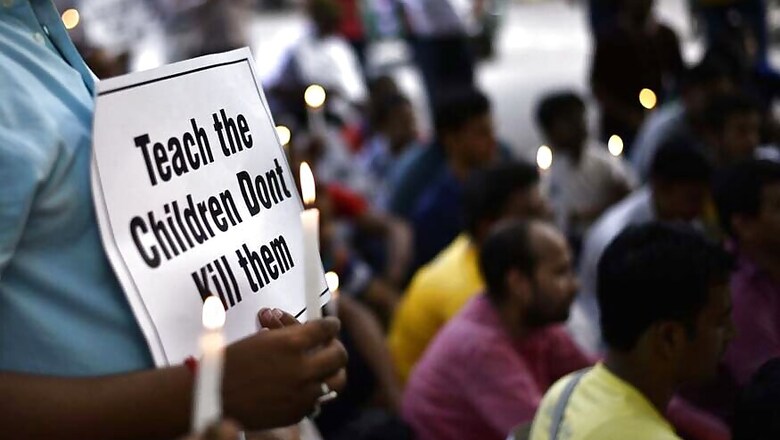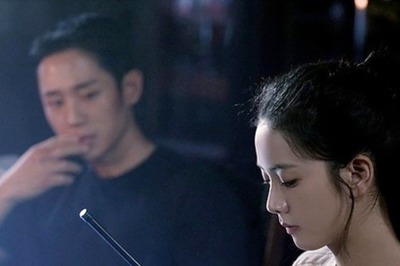
views
New Delhi: With CBI detaining a Class XI student of Ryan International School in connection with the murder of 7-year-old Pradyuman Thakur, the new law of Juvenile Justice Act (Care and Protection of Children) Act, 2015, will play a crucial role in the case, as it mandates that a child “between the age of 16 to 18 may be tried as an adult if they have committed a heinous crime”.
But will a child, apprehended by the police on charges of murder under Section 302 of IPC, still stand a chance to escape the clutches of an adult court? The decision squarely lies at the hands of the Juvenile Justice Board.
Why was the Juvenile Justice Act amended?
This bill was taken up against the backdrop of a nationwide hue and cry over the juvenile convict in the December 2012 gangrape-murder being released after a three-year term at a correctional home. Nirbhaya’s parents had said that the convict escaped because of a weak law. Yet, the new Juvenile Justice Act, does not allow juveniles to be sentenced to death or life imprisonment without a possibility of release.
What are the provisions of the JJ Act?
According to the JJ Act, if a juvenile in the age group of 16 to 18 years commits a “heinous” crime, they may be tried as an adult based on the JJ Board’s assessment. As defined by the Indian Penal Code, an offence is categorized as “heinous” if the term of punishment is seven years and above. The JJ Board’s decision on whether to try the juvenile as an adult is preceded by a preliminary inquiry to assess the following things:
• Mental and physical capacity to commit such an offence,
• Ability to understand the consequences of the offence and
• Circumstances in which the person allegedly committed the offence.
The Juvenile Justice Act further instructs that in order to complete the assessment, the Board can take the assistance of relevant experts, such as experienced psychologists. It is also clarified that the preliminary assessment is not a trial.
In this case, will the JJ Board determine the Class XI student’s fate?
Yes. The court will now examine CBI’s plea, which has charged the boy under Section 302 (murder) of IPC. It has to be noted that the CBI has claimed that the senior student committed the murder with an intention to postpone the examination that was scheduled on that day.
The investigating agency has also claimed that the student had planned the murder the same day, which is September 8. So, the court will examine if the case needs to be transferred to an adult court based on the student’s mental capacity to commit the act of murder, his ability to understand the consequences of the crime and the circumstances leading to his commission of the crime.
What are the past incidents for the court to look at?
There are two specific cases in which the board had a completely different opinion and both dealt with 16-17-year-old children committing “heinous” offences. The JJ Act 2015 has not stated explicitly under what circumstances a case will be transferred to the adult court. Due to this ambiguity in law, the Juvenile Justice Board uses its discretionary powers to decide such cases.
In the first case, a 17-year-old was accused of sodomising a 10-year-old girl.
In February this year, the board ordered a transfer of the case to an adult court. This decision was further challenged in the Delhi High Court based on the facts that there were no external injuries on the 10-year-old victim and that the accused was a first time offender.
However, the board observed that the accused had a manipulative mental trait and secondly, there was no evidence to suggest that the accused could not perform a sexual act. The fact that the accused had threatened to kill the minor girl, also went against him.
The board, however, had a completely different opinion in the case of another 17-year-old who was charged of repeatedly sexual assault of two minors, who he used to teach. In this case too, the accused was a first time offender and no external injuries were seen on the bodies of the victims. However, the board stated that “the gravity of the offence, by itself, shall not be the sole determining circumstance on the issue of preliminary assessment under section 15 JJ Act 2015”.




















Comments
0 comment